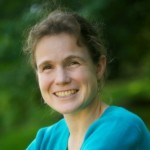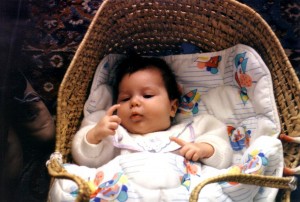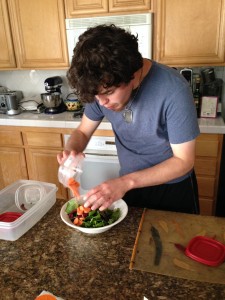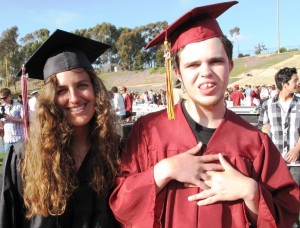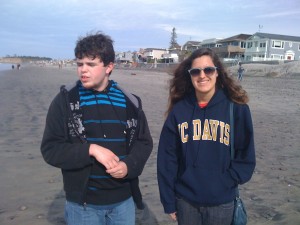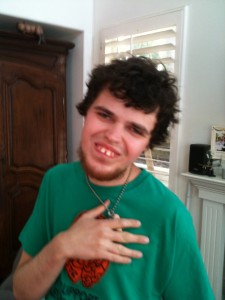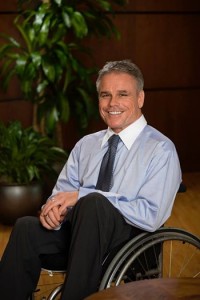Autism College occasionally publishes guest blogs of different perspectives. This blogpost is by Jackie McMillan, B.E.S., who has Asperger’s Syndrome. Jackie’s self-directed recovery started in 1976 at age 11. Since her first inkling that she was autistic in 1988, Jackie has been combining her recovery discoveries with those of other autistics, and with scientific research from a variety of health fields. Finding no workable model of autism, she has created one that helps others to optimize the gifts, and minimize the challenges of Autistic Spectrum Disorders. She has drawn on her degree in environmental studies, two years of pre-medical training, and many certifications in complementary health. Jackie lives by the motto: If you know things have to change, you might as well enjoy it! For more information about McMillan, visit ThriveWithAutism.ca
The Three Models of Autism
Have you ever wondered why some autistics get health and functional improvements from an intervention like food changes, and other autistics just don’t? Or wondered why there’s such a big gap between a good day, and a bad day, for the autistic in your life?
I have a unique perspective on this. I have autism, and at age 11, I spent one month at a wilderness canoe-tripping organization. Through that month, ever-so-gradually, my pain levels dropped, my emotions smoothed out, my thinking and memory improved, my reaction times got much faster, and I was able to make and keep friends. Unfortunately, within two days of my return to my normal inner-city environment, everything slid back to ground zero. I desperately wanted to go back to that amazing quality of life, though, and I was determined to figure out how to recreate it.
The Turning Point:
I turned my life into a science experiment, testing out every factor that had been different between these two environments. Through lifestyle choices, my thinking improved enough that I was able to go through the science track in high school, where I began to chase down my symptoms in the medical journals. No-one ever mentioned autism; my parents felt I had enough to deal with, sans diagnosis and the threats of institutionalization which would have been normal at that time.
In my second year of pre-medical studies, I hit a roadblock. Though the medical journals covered many of the factors which I had discovered could help or hurt me, the medical program was focusing all of its efforts on diagnostics, and drugs. I knew drugs were trouble; in a pharmacology course, I had looked up every drug I’d ever taken. I had all the side effects plus some, and even the intended effects were disproportional.
I took some time off to regroup, and ended up in a different university program, environmental studies. Around that time, a nurse gave me an informal diagnosis of autism. The medical journals were spot on in their diagnostic criteria of ASDs (as applied to me), but the treatments and theories didn’t make sense at all, in terms of my own experiences. Fortunately, other autistics’ experiences mirrored mine: I wasn’t crazy in what I had identified could help, or hurt!
Right now, there are three models of autism.
The Outdated Model of Autism:
The outdated model says that autism is an incurable neurological disorder, and that nothing can be done except to suppress the symptoms in a variety of ways. If an autistic’s health improves enough to camouflage in the school or working world, then the original diagnosis must have been wrong. An unintended result is that this model silences autistics who have experienced some degree of recovery.
The Bio-Medical Model of Autism:
We now know that this outdated model isn’t true, because doctor’s children have recovered enough health function that these MDs have begun treating other autistic children, with some success. These doctors are working with the biomedical model, which says that autism is caused by some combination of malnourishment, impaired detoxification, and immune dysfunction.
The bio-medical treatments are expensive supplements, detox protocols, and immune supports. Unfortunately, it is often carried out in a “one-size-fits-all” manner, without careful study of which impairments might need to be addressed before action can be taken on the others, for each individual. It is also inaccessible to many who cannot afford the treatments, or find a doctor who keeps up with the research, and the results are spotty.
The Five Root Causes Model of Autism:
But there are many, many adults in the autistic spectrum who began with much more impairments, yet are now sufficiently functional that we can participate (at least to some extent) in venues and interactions formerly limited to the non-autistic population. Our collective experiences point to two root causes of autism which are not included in the biomedical model. These are unresolved trauma, and brain and nervous system impingement.
Autistic experiences also point to simple and inexpensive lifestyle choices which can maximize function — or quickly detract from it. This makes a great deal of sense of the variable function and symptoms of each individual with an ASD, from day to day! With different blends of the different root causes in action for each autistic individual, these lifestyle choices vary, but the commonalities are obvious.
Interventions vs. Lifestyle? Or both?
Beyond lifestyle choices, interventions can still make a huge difference to health, function, and quality of life for autistics. How do we tell which interventions will help which autistic? Fortunately, the symptoms themselves point the way. The unique symptoms expressed by each individual can make it much easier to understand which of the five causes might be in action, to which degree, and in what order of precedence, for that specific individual.
But tailoring treatments to the relevant root causes is not enough, on its own. Without the lifestyle changes which support a return to health, functional gains are as short-lived as mine were from that summer camp experience. Fortunately, what is healthiest for people with ASDs is what is healthiest for our entire human race. Health challenges as disparate as hair loss and cancer respond favourably to the same lifestyle changes.
Which straw broke the camel’s back to bring on autistic symptoms can be figured out, and quality of life improved, for every individual on the autistic spectrum. Some repairs are easier than others, and some are more complete. But the potential contributions all of us autistics, with our problem-solving brains, are needed by our culture in this time of change. Won’t you please help us to thrive?
